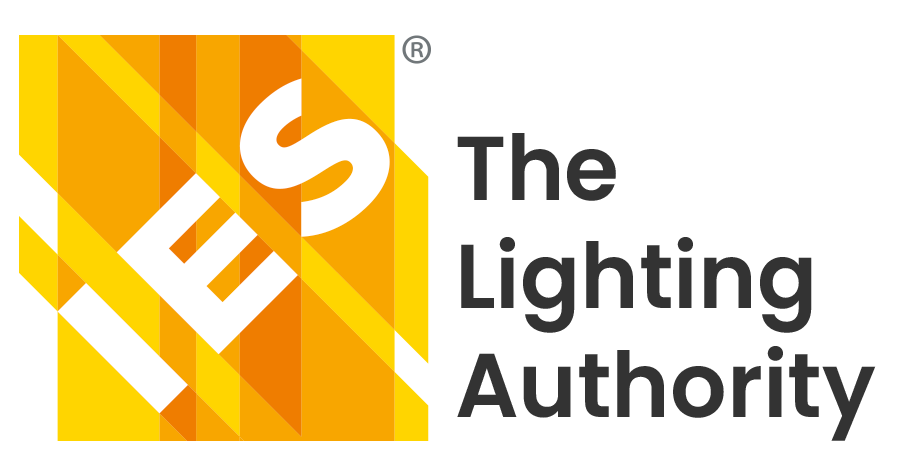The IES Diversity, Equity, Inclusion and Respect (DEIR) Committee was created to shape the internal and external systems, processes, and assumptions of the organization from the view of a newer, more inclusive lens.
News
Lighting Advocacy Congress Formed to Further DEIR Missions in the Lighting Industry
New York, NY: The Illuminating Engineering Society (IES) is proud to announce the formation of a new entity dedicated to furthering Diversity, Equity, Inclusion, and Respect (DEIR) in the lighting industry. The Lighting Advocacy Congress shall serve as a “United Nations” model for lighting organizations with DEIR missions to coordinate activities and share experiences, advice, and resources. It will encourage and foster interaction, cooperation, and collaboration between these organizations to instigate positive change in lighting and related industries. The IES is proud to be the host and virtual headquarters for this pioneering effort.
The Congress will be funded through benefactors who consist of lighting firms and manufacturers with a proven record of DEIR principles and practice. These benefactors shall be encouraged to likewise share resources and knowledge to further DEIR in the manufacturing realm.
Message from DEIR Chair
In the beginning, there was light. It had no color and knew no color. It simply shined. What it shined upon meant nothing to light. It is all colors and any one color at the same time. We believe in a Lighting Society that recognizes this fact. That has dedicated itself to the study of this medium making great strides in knowledge and applicable practice for the betterment of the Earthen environment. Yet, it also admits the humility of what is yet to be known from this complex medium. It remains perceptibly any one color and yet is composed of all colors. We appreciate it for the complex entity that it is without thought or judgement. We recognize that our primary interaction and perception lies within the reflectance of surfaces that give it the qualities that we associate with it. Light does not shine any more or less on the white sand, red clay, black and brown soil. It brings all of its majesty equally on all surfaces and we see. When there is no light, we cannot see. We become afraid, anxious, and feel helpless. Yet, when there is light, any light, any color, we can see. Our anxiety and fear is alleviated. We feel empowered again within our surroundings. We believe everyone should feel this safe and empowered.
We believe in a Society that admits these things and wants all to see, equally and with the same opportunities. We believe in what the IES can be. We believe…
IES Statement of Support for NACLIQ
The Illuminating Engineering Society (IES) is proud to support the North American Coalition of Lighting Industry Queers (NACLIQ). NACLIQ exists to provide a safe space for all LGBTQIA+ members and others in the lighting community.
The IES strives to positively impact our Society and the global lighting industry at-large to promote a community that is diverse, equitable, inclusive and respectful of all members. We are eager to participate in discussions that lead to the sharing of differing points of view and the evolution of new ideas. The IES community is made of up a vast number of different ethnic, sexual, religious and other backgrounds and values, and we are committed to moving forward in a genuine and formative way by radiating and promoting inclusiveness.
IES DEIR Chair Report
Since the creation of the Diversity, Equity, Inclusion, and Respect (DEIR) Committee, we have been steadily working on the means to bring awareness of the committee as well as begin the research we needed to develop plans for recommendations to the IES Board of Directors. We developed a survey for release to the membership to provide us with information that the Society had never obtained. This included candid assessments of the diverse make up of the Society, the opinions regarding personal comfort in IES events, and exposure to DEI in the workplace. We received a 10% return on the survey and are using that information for developing programs and ideas for the Board to consider.
During the IES Conference, we held a series of awareness videos where we discussed the committee’s charter and some thoughts of where we will be going from here. The committee has a representative on the search committee for the new Executive Director and have worked to put in DEI language into the parameters for the new Executive Director.

Peter Hugh, Committee Chair
Hugh Lighting Design
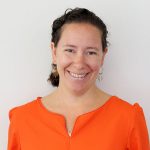
Mariel Taviana Acevedo
ALR
“We cannot be the group that writes the Recommended Practices for lighting for everyone, when everyone is not part of the process. The needs and preferences of different groups need to be part of the scientific and academic studies, the voices and experiences of everyone need to be part of the committees and the faces of everyone should be part of our leadership, presenters and participants. Helping the IES establish policies that will make this happen is why I joined DEIR.”
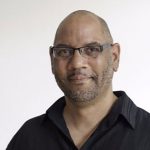
Edward Bartholomew
Bartholomew Lighting
“I wanted to be a part of DEIR because it corresponds with what I have fought for and experienced my entire career. To me, diversity is more than just increasing the proportion of non-white, non-male members of an organization. I believe that a design firm should have diverse and just practices. Diversity and inclusion are critical to a design practice that effectively furthers justice in demonstrable ways: The power, position, and influence of its leadership and staff. How it represents itself and promotes its values. The type of clients and projects it pursues or rejects. And, how it effectively serves under-represented communities through an inclusive design process with a genuinely diverse design team. Based on this definition, diversity as a practice is anti-racist.”
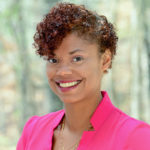
Bernadette Boudreaux
DLC
“In the future I will be graduating from the EP program and intent to establish myself as an industry recognized resource in relation to the DLC and other energy and diversity related activities. Since I have been fortunate to have great mentors/support, I intend to offer the same to the new generation of EPs by sharing experiences, knowledge, and resources. As a black woman, I have also recognized the need for more diversity and inclusion, and I intend to be a change-agent and very active in this arena for our industry. I want to be example to EPs and young brown girls that there is opportunity in lighting, and you can be successful. I hope to assist and work with the various organizations to ensure there are processes/tools in place that ensure more groups will be included and supported.”
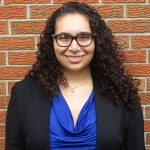
Elizabeth Williams
Illuminart

Quincy Drane
M.Arch / MFA Lighting

Ira Rothman
Board Liaison
Ira Rothman has been part of the Lighting Industry since the late 1980’s, first as an Electrical Engineer, then as the Vice President of Sales and Marketing for a Lighting Manufacture; for the last 21 years his focus has been as a Lighting Manufacturer’s Representative. Currently, as Director of Specification Sales with Apex Lighting Solutions, he promotes over 100 Lighting and Lighting Controls companies to the greater Boston design community offering technical support and design assistance, as well as training and sales management for the Apex Lighting Solutions Specification Sales team.
Ira is currently an At-Large Director for the Illuminating Engineering Society (IES) and past President of the IES Boston & Rhode Island Sections.
Article
Achieving Equitable Indoor Lighting
Redesigning and rebalancing current approaches to lighting
Everyone deserves good lighting, particularly indoors, where many of us spend most of our time. This may be a simple declaration, but in practice, “good lighting” is a challenge to deliver equitably. Thoughtfully designed, high-quality lighting has long been an indicator of wealth and prosperity. In contrast, systemically disadvantaged and vulnerable communities, especially the occupants of public buildings, are often forced to accept substandard lighting.
Light Justice began in 2020 by examining outdoor lighting inequities: how lighting in the public realm has been historically used, both intentionally and inadvertently, to oppress and marginalize communities of color. These instances clearly demonstrate discriminatory social and environmental injustice. Moving indoors, equitable light can be understood as well-designed daylighting and electric lighting that work in concert to provide a positive occupant experience. This light is the appropriate intensity, color and distribution for the facility, prioritizing people who spend the most time in the space. It is attractive; easily controlled to enable useful variability; supports visual acuity and circadian health; designed and specified to be affordable, efficient and sustainable; and an investment in occupant satisfaction, well-being and productivity.
Message from DEIR Chair
In the beginning, there was light. It had no color and knew no color. It simply shined. What it shined upon meant nothing to light. It is all colors and any one color at the same time. We believe in a Lighting Society that recognizes this fact. That has dedicated itself to the study of this medium making great strides in knowledge and applicable practice for the betterment of the Earthen environment. Yet, it also admits the humility of what is yet to be known from this complex medium. It remains perceptibly any one color and yet is composed of all colors. We appreciate it for the complex entity that it is without thought or judgement. We recognize that our primary interaction and perception lies within the reflectance of surfaces that give it the qualities that we associate with it. Light does not shine any more or less on the white sand, red clay, black and brown soil. It brings all of its majesty equally on all surfaces and we see. When there is no light, we cannot see. We become afraid, anxious, and feel helpless. Yet, when there is light, any light, any color, we can see. Our anxiety and fear is alleviated. We feel empowered again within our surroundings. We believe everyone should feel this safe and empowered.
We believe in a Society that admits these things and wants all to see, equally and with the same opportunities. We believe in what the IES can be. We believe…
IES Statement of Support for NACLIQ
The Illuminating Engineering Society (IES) is proud to support the North American Coalition of Lighting Industry Queers (NACLIQ). NACLIQ exists to provide a safe space for all LGBTQIA+ members and others in the lighting community.
The IES strives to positively impact our Society and the global lighting industry at-large to promote a community that is diverse, equitable, inclusive and respectful of all members. We are eager to participate in discussions that lead to the sharing of differing points of view and the evolution of new ideas. The IES community is made of up a vast number of different ethnic, sexual, religious and other backgrounds and values, and we are committed to moving forward in a genuine and formative way by radiating and promoting inclusiveness.
IES DEIR Chair Report
Since the creation of the Diversity, Equity, Inclusion, and Respect (DEIR) Committee, we have been steadily working on the means to bring awareness of the committee as well as begin the research we needed to develop plans for recommendations to the IES Board of Directors. We developed a survey for release to the membership to provide us with information that the Society had never obtained. This included candid assessments of the diverse make up of the Society, the opinions regarding personal comfort in IES events, and exposure to DEI in the workplace. We received a 10% return on the survey and are using that information for developing programs and ideas for the Board to consider.
During the IES Conference, we held a series of awareness videos where we discussed the committee’s charter and some thoughts of where we will be going from here. The committee has a representative on the search committee for the new Executive Director and have worked to put in DEI language into the parameters for the new Executive Director.
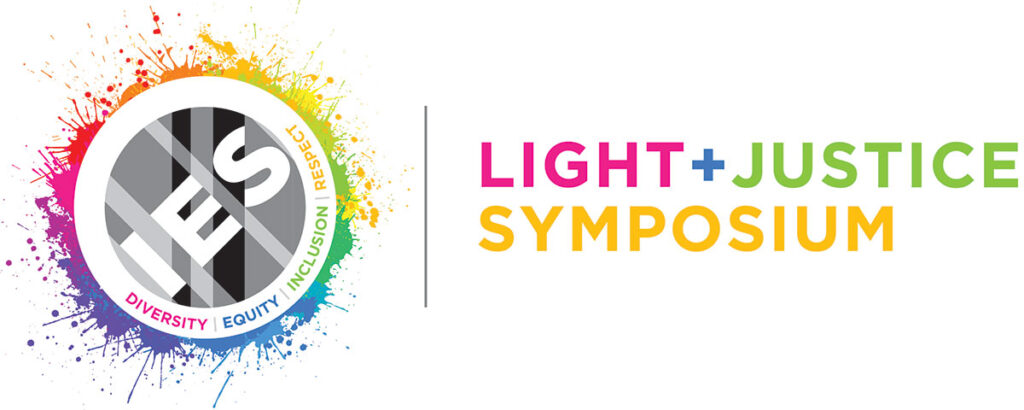
Diversity, Equity, Inclusion and Respect (DEIR) Committee Scope
Identify standards, best practices, and related frameworks governing Diversity and Inclusion globally, including:
- Systems to provide opportunities for self-identification in data collection
- Protocols for education, development, and implementation of the DEIR lens, specifically during the onboarding process for staff, members, and volunteers
- Procedures for measurement of data to evaluate causation, correlation and progress
- Identify and nurture meaningful and valuable partnerships with appropriate organizations
- Identify channels and opportunities for articles, blogs, and posts on this topic within IES and with partner organizations
- Develop and manage a virtual community(ies) around diversity, inclusion, and equity to drive member engagement and communication in a safe environment
- Support relevant existing IES programs, events, and publications with a DEIR lens for improving messaging, materials, and opportunities for staff, members, and volunteers
- Recommend to IES Board of Directors and Staff Liaison approaches to identify future potential volunteer leaders in underrepresented groups within IES current membership for sections, committees, and board positions
- Participate in educational opportunities at all levels of the Society as DEIR subject-matter experts at IES, IES-sponsored, IES-section, and non-IES events
- Identify potential research topics within our industry and participate in research around DEIR issues
